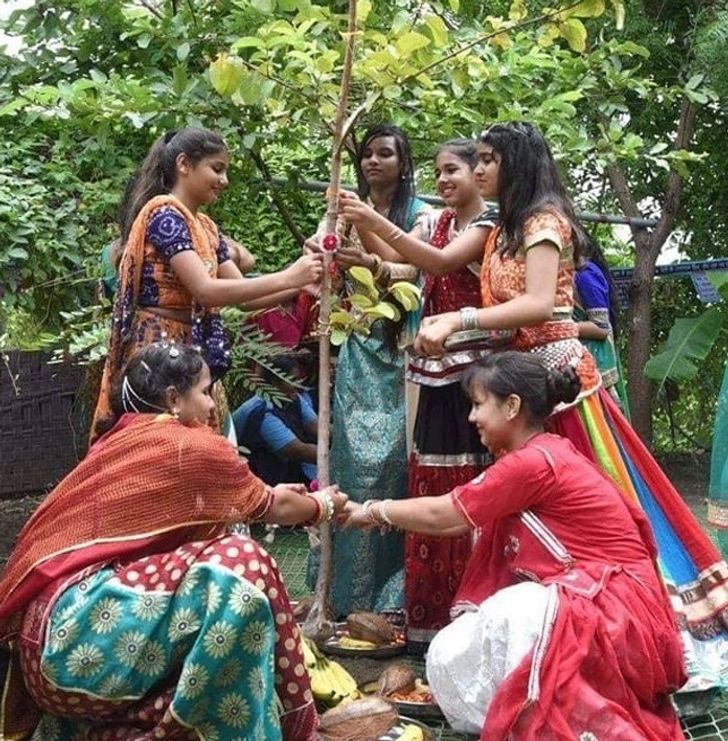
It seems that an increase in the human population always harms the environment. But this village found a way to celebrate newborn girls by supporting their people’s ecological and economical future. Additionally, the villagers managed to use this tradition to fight historical prejudice against young women.
Here at Bright Side, we were very moved by this tradition of making the world a greener, more equal place, and we couldn’t help but want to share it with you. Behold this incredibly touching story that should be replicated not only throughout India but throughout the world!
The custom was born in 2006.

The tradition that turned Piplantri into an oasis started in 2006. The village’s former leader, Shyam Sundar Paliwal, shared that when his daughter passed away, they planted a tree to mark her death, and that’s how it all started.

Paliwal wanted to protect the future of female children in the village, so he launched a program that would not only help nature but also raise money for the girls.
111 is a lucky number.
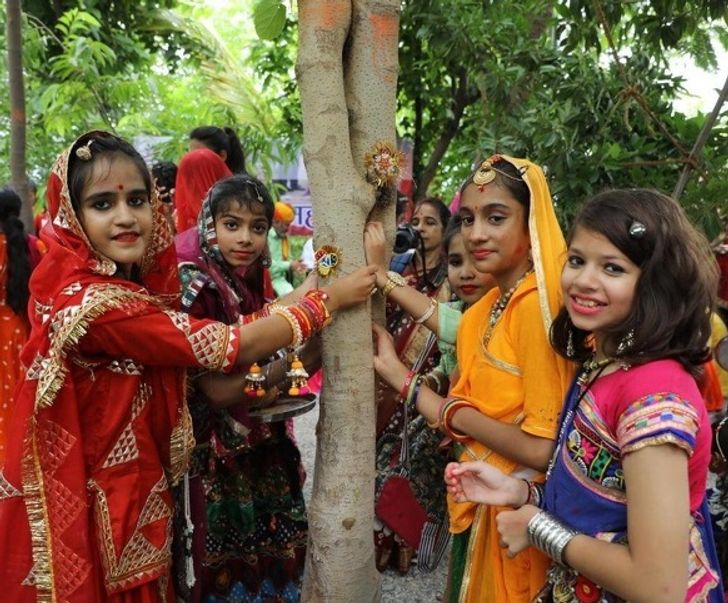
According to Paliwal, around 60 girls are born in Piplantri each year. In Indian culture, the number 111 is believed to be lucky and bring success. So every time a little girl is born there, 111 trees are planted in her honor.
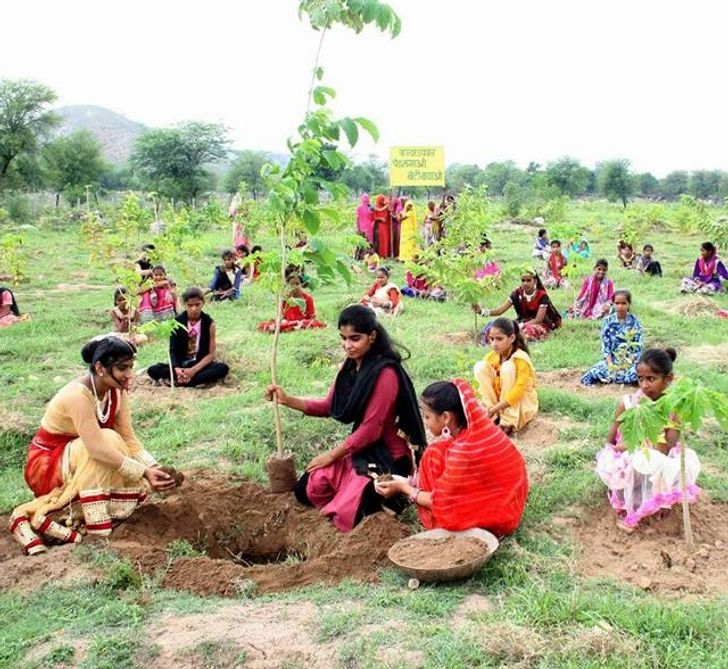
Since the first tree was planted, there have been 350,000 trees growing in and around Piplantri, ensuring that with each year, the future of the village gets a little greener.
The tradition helps Piplantri grow economically and environmentally.
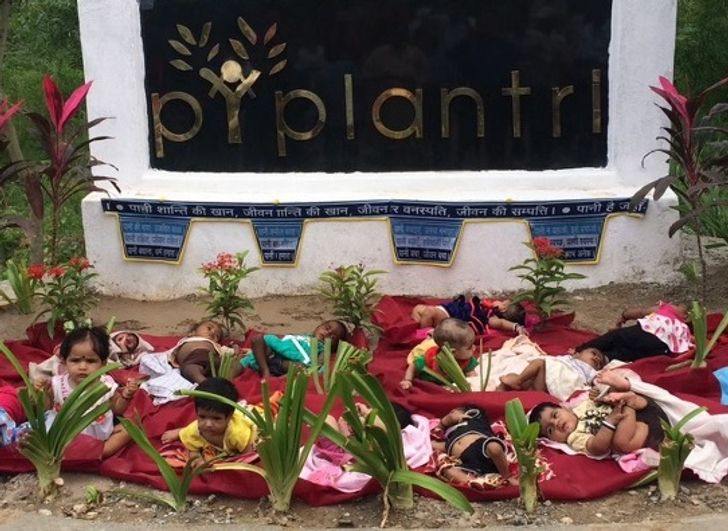
The trees provide food, energy, and income to the 8,000 residents of Piplantri and encourage them to achieve long-term economic and environmental sustainability. Plants also filter the air and help contribute to a higher water level and richer wildlife.
The village also collects a capital for each newborn girl.
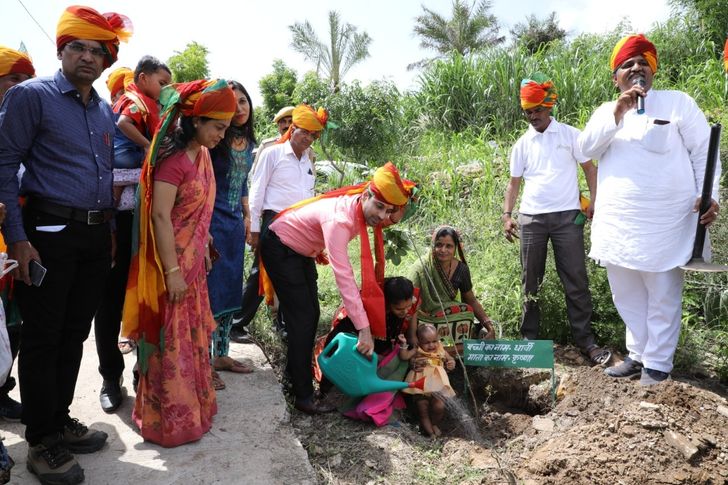
The tradition is not only about planting trees. In order to make sure the young women are always provided for, the village also collects a deposit capital for newborn girls — the amount of 31,000 rupees (which is approximately $400) remains untouchable until her twentieth birthday. This tradition is meant to fight the prejudice of a girl being a financial burden on her parents.
The tradition also implies that a girl can’t get married until she gets an education.
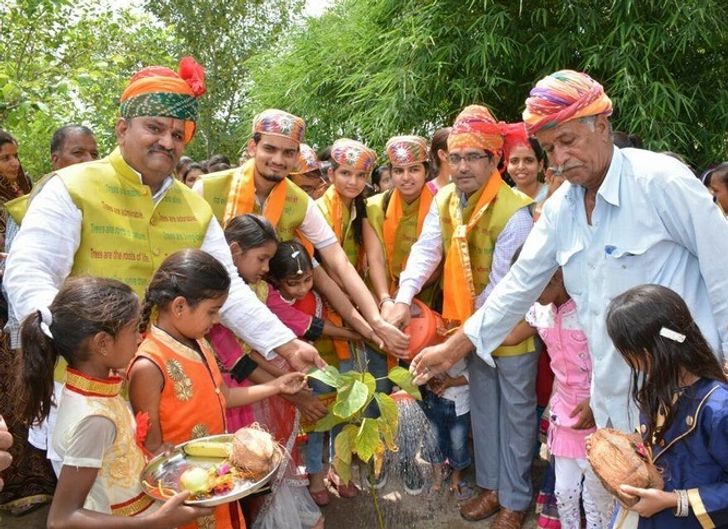
Parents also sign an oath stating that their daughter will get married only after she has received the proper education and reached the legal age. This noble custom has been carried out for nearly 15 years now.
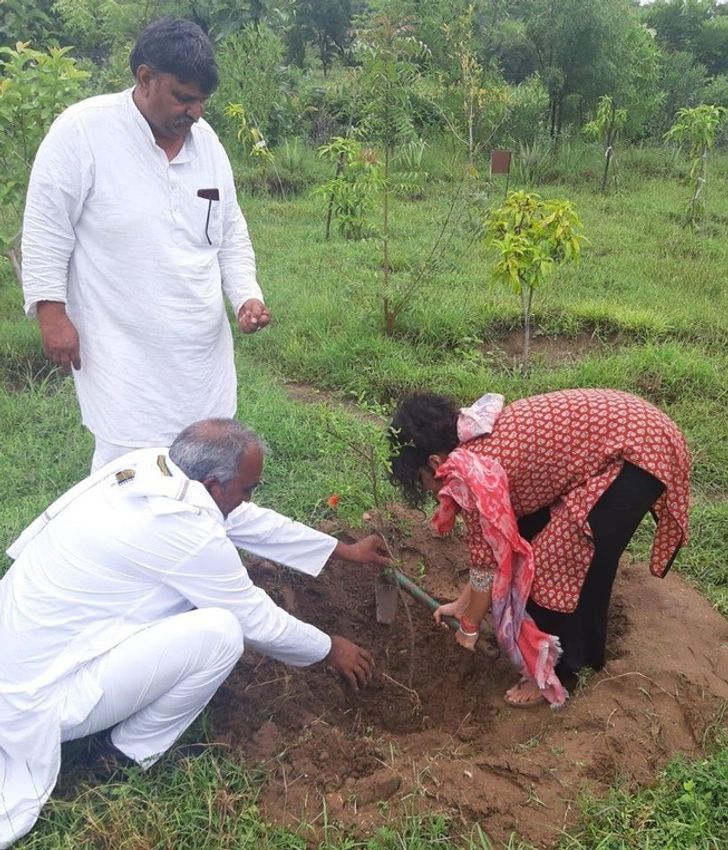
A decade later, the Piplantri village became world-famous for its “eco-feministic” tradition. The villagers have planted different trees that started making them income: like the sheesham, mango, neem, amla and many others.
Villagers also plant natural pesticide plants and take good care of the forest.
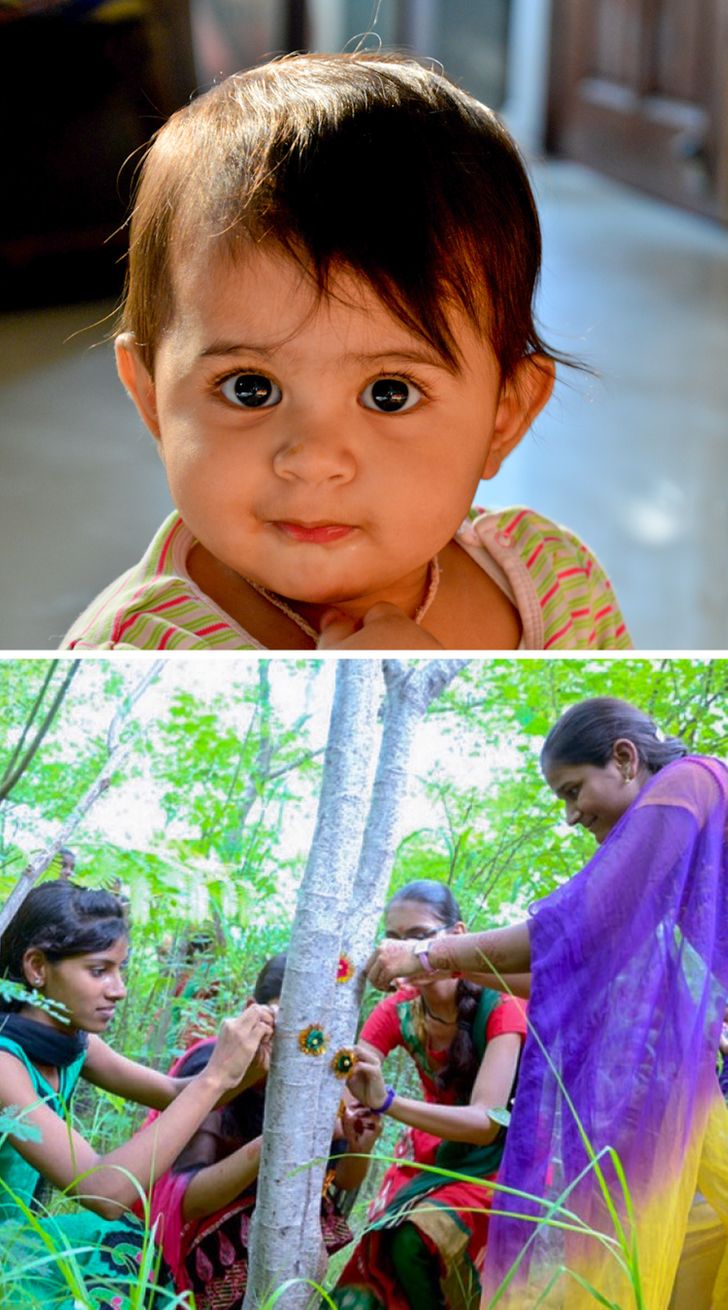
Every year, Indian citizens celebrate Raksha Bandhan, a traditional festival where all sisters tie a bracelet onto their brothers’ hands. And Piplantri women take this tradition one step further — they tie bracelets onto the trees as well as a symbol of protection.
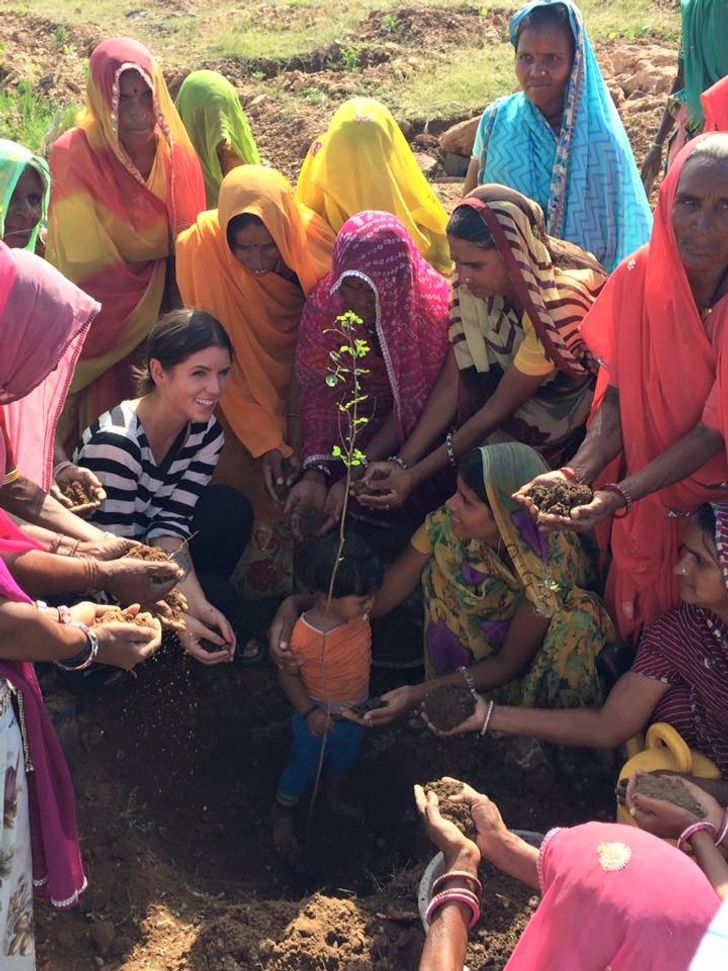
Additionally, the Piplantri people started planting aloe vera next to the trees because it works as a natural pesticide. The village also started selling products made of the aloe plant like juice and gel, among other things.


